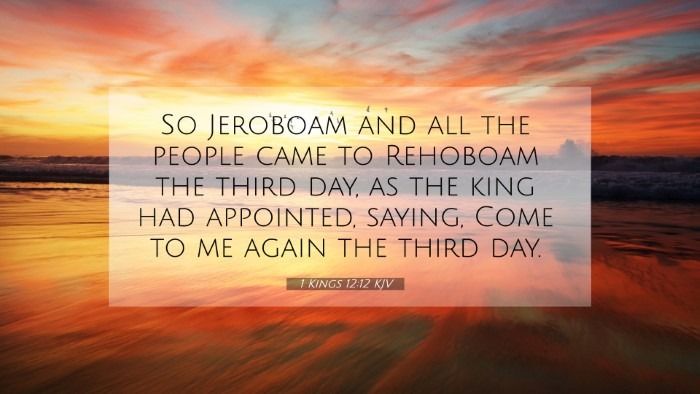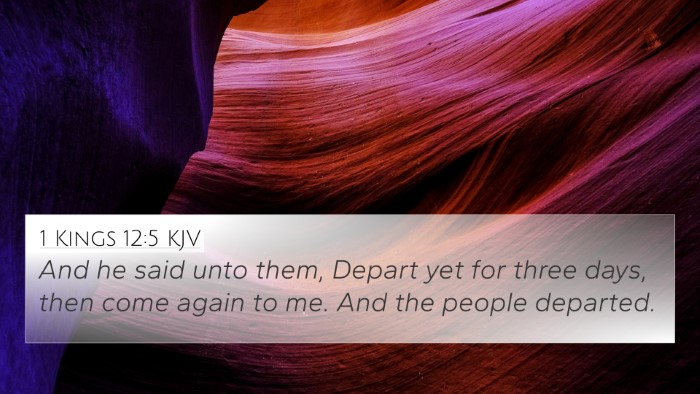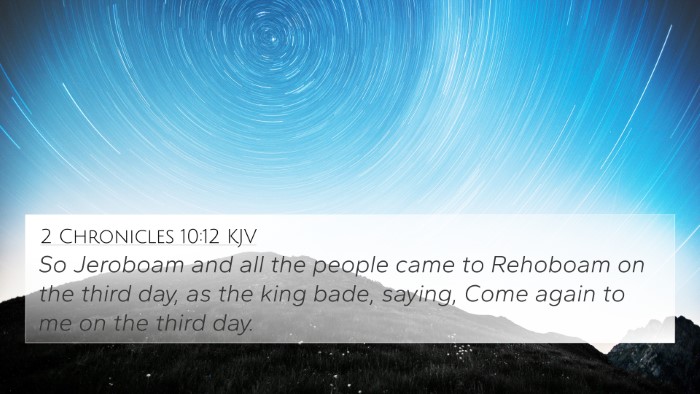Old Testament
Genesis Exodus Leviticus Numbers Deuteronomy Joshua Judges Ruth 1 Samuel 2 Samuel 1 Kings 2 Kings 1 Chronicles 2 Chronicles Ezra Nehemiah Esther Job Psalms Proverbs Ecclesiastes Song of Solomon Isaiah Jeremiah Lamentations Ezekiel Daniel Hosea Joel Amos Obadiah Jonah Micah Nahum Habakkuk Zephaniah Haggai Zechariah MalachiVerse
1 Kings 12:1 1 Kings 12:2 1 Kings 12:3 1 Kings 12:4 1 Kings 12:5 1 Kings 12:6 1 Kings 12:7 1 Kings 12:8 1 Kings 12:9 1 Kings 12:10 1 Kings 12:11 1 Kings 12:12 1 Kings 12:13 1 Kings 12:14 1 Kings 12:15 1 Kings 12:16 1 Kings 12:17 1 Kings 12:18 1 Kings 12:19 1 Kings 12:20 1 Kings 12:21 1 Kings 12:22 1 Kings 12:23 1 Kings 12:24 1 Kings 12:25 1 Kings 12:26 1 Kings 12:27 1 Kings 12:28 1 Kings 12:29 1 Kings 12:30 1 Kings 12:31 1 Kings 12:32 1 Kings 12:33



